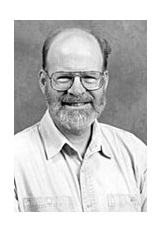Janeway Society
The Janeway Society was recently developed to create infrastructure and oversight for career development and to shorten the time to independence at Yale. Scholars supported by individual career development awards from the NIH, institutional K programs, and VA career awards as well as junior faculty from a basic science department are invited to become members. Scholars participate in a mentorship and advising program, a grant writing program with emphasis on K-to-R transition, and a professional development seminar series. Physician-Scientist members meet yearly with Dr. Keith Choate to review candidate career and mentorship plans. Chairs must agree for members will have 75% protected time for research in non-procedural departments, and 50% in procedural ones as specified by the terms of members’ awards. Failure to meet protected time requirements will lead to withdrawal of their membership. Members of the Janeway society will work with their mentors to outline responsibilities of each and a pathway to independence including submission of an R01 or equivalent. These efforts create a structure to ensure junior faculty have the necessary protected time. The Society creates a robust intellectual environment which supports leadership development and collaboration. Members participate in a monthly Career Development, Management, and Leadership Series which covers topics including workshops on identifying funding opportunities, mentorship relationships, time management, appointments and promotions, work-life balance and burnout, communicating across differences, and speaking about bias and inequality. The Janeway Society provides grant- and manuscript-writing workshops, a repository of successful grants, and an internal grant review process. An Annual Research Retreat is planned and will be modeled after a Gordon Conference format, bringing together trainees and mentors to discuss their clinical and translational research.
Eligibility
- Janeway Society members must have a full-time faculty appointment except for postdoctoral trainees on K99s.
- Janeway Society members must have a minimum of 75% protected time for research, or 50% for clinician-scientists in procedural subspecialties.
- Janeway Society Members must be a PI on a NIH Career Development Award such as K08, K22, etc, VA Career Award or be a Scholar on a K12 award, YCCI Scholar award or Yale Physician-Scientist Development award.
- K99/R00 awardees who are in the K99 or R00 portion are eligible to join the Janeway Society.
- Assistant Professors in Basic Science departments are eligible to join the Janeway Society without a career award if they have been on the faculty for less than 5 years and are in the Traditional or Investigator track.
- PhD Faculty in a clinical department without a career award may apply for membership during their first term as assistant professor in the Clinician-Scientist, Traditional or Investigator track. The application will be evaluated by OPSSD leadership, and they will be offered a 3-year term as a Janeway Society Member if accepted for membership.
- Membership will not be offered to faculty who have already received a R01 or another large research grant as a PI.
- When a member’s career awards end, they are allowed to remain in the Janeway Society as long as they have continued protected research time. When a member becomes a PI on a R01 or other large research project grant such as DP2 and their career award has ended, they will no longer be considered a Janeway Society Member, but they still will be invited to participate in Janeway Society activities.
About Charles Janeway
 Charles Alderson Janeway was a field-leading translational immunologist and celebrated professor. A graduate of Harvard College and Medical school, he completed an internal medicine internship at the Brigham Hospital in Boston and trained in immunobiology at the National Institutes of Health and Upsalla University. He joined the Yale faculty in 1977 and was a founding member of the section of Immunobiology. He made major contributions to our understanding of the mechanisms by which T cells recognize their cognate antigen, and pioneered studies of innate immunity. He was an HHMI investigator and was elected to the National Academy of Sciences. He was a dedicated mentor to medical students, post-doctoral fellows, and faculty who sponsored and promoted the careers of a generation of immunobiologists.
Charles Alderson Janeway was a field-leading translational immunologist and celebrated professor. A graduate of Harvard College and Medical school, he completed an internal medicine internship at the Brigham Hospital in Boston and trained in immunobiology at the National Institutes of Health and Upsalla University. He joined the Yale faculty in 1977 and was a founding member of the section of Immunobiology. He made major contributions to our understanding of the mechanisms by which T cells recognize their cognate antigen, and pioneered studies of innate immunity. He was an HHMI investigator and was elected to the National Academy of Sciences. He was a dedicated mentor to medical students, post-doctoral fellows, and faculty who sponsored and promoted the careers of a generation of immunobiologists.